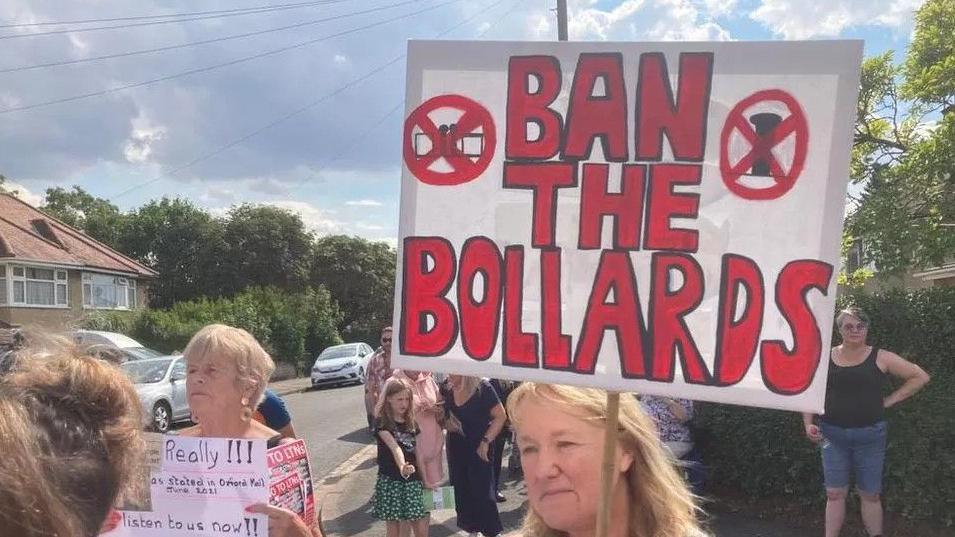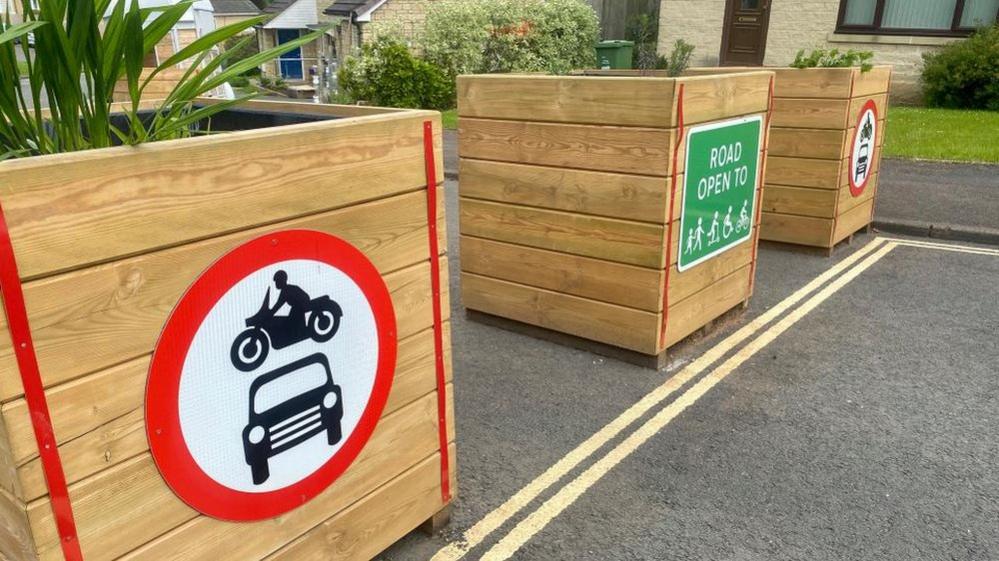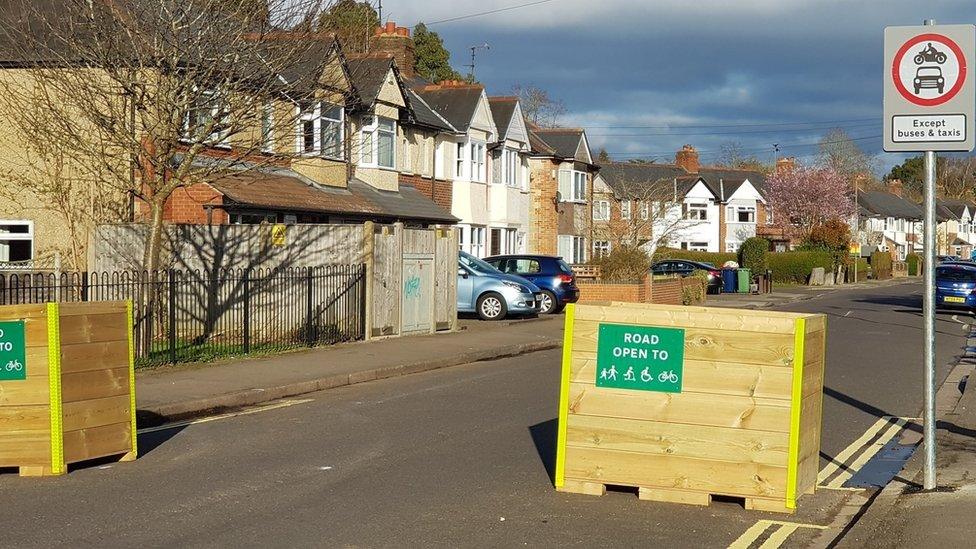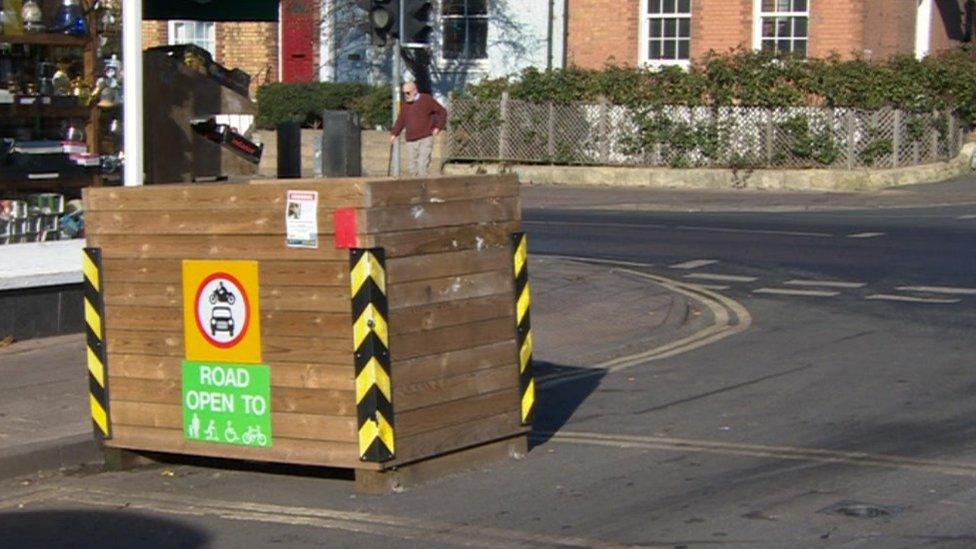Are LTNs a mainstream issue in the election?

LTNs have prompted protests in Oxford
- Published
Low Traffic Neighbourhoods (LTNs) have been a divisive local issue in east Oxford since they were first introduced in 2021. But with election day just around the corner, how much of a vote decider will they be?
An LTN is an area with infrastructure in place preventing most vehicles from driving through.
The aim is to create quieter and safer streets for residents to cycle or walk.
LTNs were originally introduced in east Oxford in 2021 as part of an 18-month trial, and have since been made permanent.
One of the criticisms of LTNs is buses are not regular or cheap enough to encourage people to use public transport instead.
Resident Alison Moss thinks they are "destroying" the city, and the lack of bus routes available means public transport is not a viable alternative.
Thousands of pounds have been spent on repairing or replacing vandalised traffic bollards. Since the introduction of LTNs, Oxfordshire County Council has spent more than £75,000 fixing them.
But while there are vocal critics of LTNs, there is also support for them.
"I live in an LTN - it’s really transformed the area," says James Schumann.
"It has encouraged a few of us out of our cars."

Resident Alison Moss says LTNs are "destroying" Oxford
The recent local elections saw the newly formed Independent Oxford Alliance gain four seats in East Oxford at Oxford City Council, even taking away some from Labour. One of their main policies was to remove LTNs.
David Henwood is the party’s candidate for Oxford East in the general election.
"They create longer car journeys, more pollution and more congestion," he says.
It has been a big local issue in recent years, but this is the first opportunity since LTNs were introduced that the issue could be brought up at a national level.
Oxford East’s Labour candidate, Anneliese Dodds, thinks that bus services should be improved first as "not everyone in Oxford can cycle or walk".
Louise Brown is the Conservative party candidate. She says that East Oxford does not have enough cycle lanes or regular buses, making LTNs "unworkable".
The Green Party’s candidate, Sushila Dhall, says LTNs lead to "safer, more pleasant spaces for people to walk, use wheelchairs, cycle, play and meet up".
Theo Jupp, who is standing for the Liberal Democrats, believes they should be taken on a case by case basis, which should be adapted if necessary "to improve each neighbourhood’s needs".
The Independents and Social Democratic Party also oppose LTNs.
The Party of Women believes it should be voted on by constituents.
The Workers Party of Britain says it would welcome LTNs if all travel for children was free. The Rejoin EU party broadly supports LTNs if public transport is improved.
You can see a full list of candidates in the Oxford East constituency here.
Follow BBC South on Facebook, external, Twitter, external, or Instagram, external. Send your story ideas to south.newsonline@bbc.co.uk, external.

What really matters to you in this general election? What is the one issue that will influence your vote? Click the button below to submit your idea, and it could be featured on the BBC.

- Published17 March 2024

- Published2 March 2024

- Published13 February 2024

- Published17 October 2023
